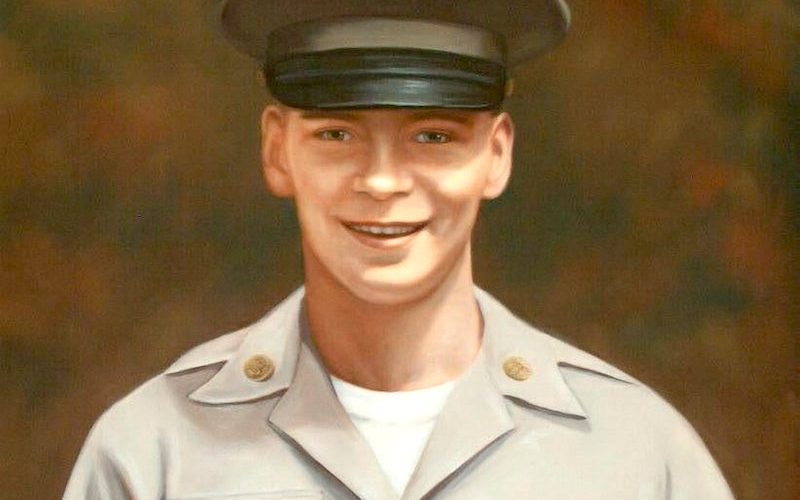Joseph Guy LaPointe Jr. was born July 2, 1948, in Dayton, Ohio. While a student at Northridge High School, he volunteered at the Aullwood Audubon Center. Guy loved nature and enjoyed hiking and camping. He planned to go to college and earn a degree in biology. His goal was to work for the National Park System, the National Audubon Society, or the Ohio Department of Natural Resources. Concerned about the social and political issues of the day, Guy supported the Civil Rights Movement.
After graduating from high school in 1966, Guy and his family moved to Clayton, Ohio. As a young adult, he took a job as a mail carrier with the post office in Englewood, Ohio.
In 1968, having already applied to several colleges with hopes of pursuing his dream, Guy was drafted. In May, he reported for duty with the U.S. Army. On reporting, he declared himself a conscientious objector. About three months later, he married his sweetheart, Cindy Failor of Dayton.
Guy became a combat medic. He completed his advanced training at the Army Medical Training Center at Fort Sam Houston in Texas. As a combat medic, Guy’s role was to treat and defend soldiers wounded in battle.
In November 1968, Guy deployed to Vietnam, serving with the famed 101st Airborne Division. This light infantry division is known as the “Screaming Eagles.” Its members had participated in the Battle of the Bulge during World War II. In 1957, under orders from President Dwight D. Eisenhower, they ensured the safety of the Little Rock Nine, the first group of African-American students enrolled in Little Rock Central High School following the U.S. Supreme Court’s 1954 decision in Brown vs. Topeka Board of Education.
Ten weeks after his deployment, Guy’s wife gave birth to a son, Joseph Guy LaPointe III. Less than five months after his son’s birth, an act of bravery cost Guy his life.
It was June 2, 1969. Guy’s unit had come under fire. During the initial assault, two men in his unit were seriously wounded. They called for aid, and Guy did not hesitate. To reach them, he had to crawl through an area under heavy fire and within full view of an enemy bunker. With his unit providing as much cover as possible, Guy shielded the wounded men with his body and began administering first aid.
A burst of gunfire struck Guy, but he continued to treat the two wounded men. He was hit a second time and knocked to the ground. With considerable effort, he managed to crawl back to the wounded men and shield them from incoming fire. A grenade mortally wounded all three.
In 1971, Guy was posthumously awarded the Medal of Honor for his efforts. Although opposed to war, Guy had still been willing to go above and beyond the call of duty to heal and preserve life.
Many places around the nation have been named in recognition of Guy’s heroism. These include a medical heliport in Fort Benning, Georgia; an Army reserve center in Riverside, Ohio; and a health center in Fort Campbell, Kentucky.
References
“Joseph Guy LaPointe, Jr.” (n.d.). virtualwall.org. Retrieved from virtualwall.org/dl/LapointeJG01a.htm
“LaPointe, Joseph G., Jr.” (n.d.). The Congressional Medal of Honor Society. Retrieved from cmohs.org/recipient-detail/3334/lapointe-joseph-g-jr.php
“Sp4 Joseph G. LaPointe – June 2, 1969.” (n.d.). Vietnam Hueys. Retrieved from vietnam-hueys.tripod.com/Medal%20of%20Honor%20page.htm
“Specialist Four Joseph G. LaPointe, Jr.” (2008). Ohio Military Hall of Fame. Retrieved from ohioheroes.org/inductees/2008/lapointe.htm
Image above courtesy of Cindy LaPointe-Dafler. Used with permission.


